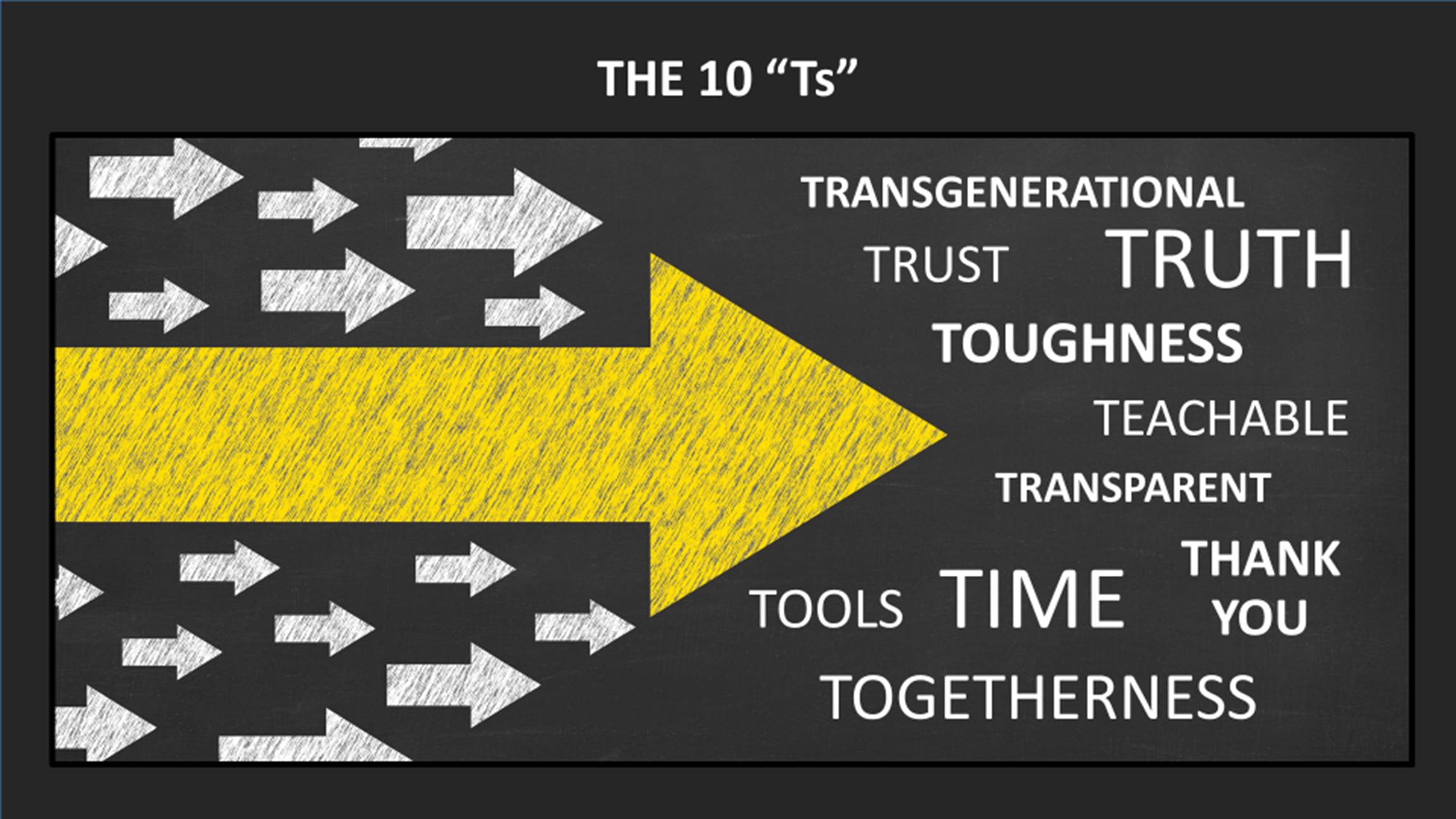Contrary to popular belief, people are not born great leaders. According to the late Warren Bennis, an organizational consultant, author, and founding chairman of the Leadership Institute at the University of Southern California, the key competencies of leadership are learned.
George Ambler, an executive partner with Gartner Executive Programs, agrees. “At its core, leadership consists of a set of skills and behaviors that can be learned,” he writes.
Ten traits of great leaders
Michelle Jackson, a seasoned instructional designer, development consultant, and founder of Tilak Learning Group, concurs that leadership is a skill that can be honed. In a recent webinar sponsored by The Training Associates, she outlined 10 traits common to great leaders. Interestingly, all 10 of Jackson’s traits begin with the letter T. According to Jackson, “These transformational Ts should be top of mind for every leader.”

Figure 1: Michelle Jackson’s 10 traits of great leaders
Her transformational traits are:
- Trust
- Time
- Tools
- Toughness
- Togetherness
- Teachable
- Truth
- Transparent
- Transgenerational
- Thank you
Below, Jackson expands on the 10 traits of great leaders.
- Trust. According to leadership expert Stephen M.R. Covey, “Research shows that only 51 percent of employees trust senior management, and only 28 percent believe CEOs are a credible source of information.” Jackson warns this is a huge problem. “You simply cannot be an effective leader without trust,” she says. Jackson emphasizes that trust must first be earned and then carefully nurtured. “People won’t automatically trust you due to your title,” she says. “It is earned over time and can be destroyed overnight.”
- Time. Great leaders are time management experts. Understanding that not everything is critical, they learn to prioritize—and they teach team members to do the same. Certain best practices are evident in nearly every business vertical. “Key factors in strong time management are being aware of the vision, setting specific and realistic goals, setting and communicating priorities, and having the discipline to follow the plan,” writes Christina Bilinski, who has more than three decades of experience as a manager, facilitator, and presenter.
- Tools. Great leaders make sure they, and their teams, are equipped with the tools necessary to do their jobs. Jackson defines “tools” as the items needed to efficiently complete projects, and she notes that they might include software, processes, and training. “But truthfully,” she says, “the most powerful leadership tool you have is your own example.”
- Toughness. Although toughness is often associated with coldness or insensitivity, Jackson says this crucial trait gives great leaders the ability to cope with difficult challenges and respond with resilience. Because they don’t choke under pressure, tough leaders are able to confidently make decisions that move their organizations forward. The challenge for leaders is to exhibit toughness while still demonstrating empathy.
- Togetherness. The best leaders don’t operate in a vacuum. They build important relationships with team members, vendors, customers, and the community. They ask questions and actively listen. Jackson advises leaders to consciously carve out time, even if it is just 15 minutes per day, to interact with others.
- Teachable. Constant learning is a key to remaining fresh and relevant. Great leaders set aside a budget that enables everyone on their team to expand their education and level up. The best leaders stay on top of current trends and are humble enough to learn from subordinates. “Never be afraid to ask someone you lead to show you something new,” Jackson suggests.
- Truth. As former President Dwight D. Eisenhower once said, “The supreme quality for leadership is unquestionably integrity. Without it, no real success is possible.” Jackson agrees. She notes that great leaders exude integrity, make honest, ethical decisions, and don’t undermine others.
- Transparent. The Dalai Lama has said, “A lack of transparency results in distrust and a deep sense of insecurity.” Jackson says leaders should strive for transparency because it creates an atmosphere of openness, honesty, and fairness in the workplace. “Encourage transparent conversations, and show how and why you make decisions,” she says.
- Transgenerational. There are currently four generations in the workplace: Traditionalists, Baby Boomers, Gen X, and Millennials. A fifth, Gen Z, is right on the horizon. Each has its own work styles, expectations, and habits. “Understand their motivations, and be flexible in order to lead each generation with confidence,” Jackson advises. She says great leaders are eager and willing to mentor talent from other generations, no matter which generation they personally come from.
- Thank you. Great leaders appreciate others and are keen to express their gratitude. “‘Thank you’ are two very powerful words,” Jackson says. “Use them often in person, in emails, and by phone.” A 2016 survey of more than 23,000 employees, conducted by the IBM Smarter Workforce Institute and Globoforce’s WorkHuman Research Institute, confirms the importance of appreciation. The survey revealed that 83 percent of employees report a positive employee experience when they feel recognized for the good work they do.


